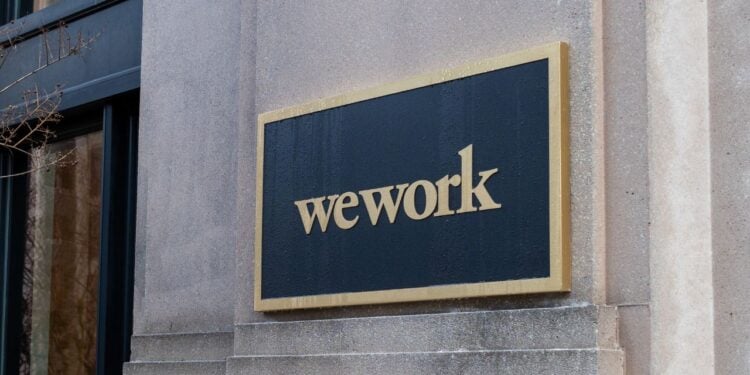WeWork has announced a new revenue-sharing agreement that will see it continue to operate three floors at One Lincoln, a prime office building located in Boston’s downtown.
The deal marks a long-term commitment to the Class-A property and underscores WeWork’s strategy to maintain a strong presence in Boston’s competitive commercial real estate market, according to WeWork’s press release.
This move is part of a broader strategy by WeWork to embrace more flexible lease arrangements, including revenue-sharing agreements, as a way to align the interests of landlords and tenants.
These alternative lease structures have gained traction as demand for flexible workspaces continues to grow. The agreement at One Lincoln signals a shift in the office leasing market, where owners and operators are looking for ways to provide more value while remaining competitive.
The new agreement also highlights the changing office market, where flexibility and adaptability have become key factors for companies seeking to navigate post-pandemic work environments.
As businesses increasingly adopt hybrid work models, the demand for flexible office space has surged. According to a recent survey, 59% of companies plan to invest in flexible workspaces over the next two years, believing that well-designed office environments contribute significantly to profitability, productivity, and company culture.
For WeWork, the agreement at One Lincoln not only cements its foothold in one of Boston’s most prestigious office buildings, but also aligns with its broader vision of providing adaptable workspaces that cater to evolving business needs.
The partnership with the ownership group of One Lincoln is seen as a significant step in WeWork’s efforts to diversify its portfolio and strengthen its relationship with landlords.
The revenue-sharing model allows both parties to benefit from the increasing demand for flexible office solutions, while offering tenants a differentiated and high-quality workspace experience.
As companies reimagine the role of the office in the post-pandemic world, flexible space providers are well-positioned to meet the growing demand for agile, scalable workspaces that support a variety of work styles and business needs.



 Dr. Gleb Tsipursky – The Office Whisperer
Dr. Gleb Tsipursky – The Office Whisperer Nirit Cohen – WorkFutures
Nirit Cohen – WorkFutures Angela Howard – Culture Expert
Angela Howard – Culture Expert Drew Jones – Design & Innovation
Drew Jones – Design & Innovation Jonathan Price – CRE & Flex Expert
Jonathan Price – CRE & Flex Expert











